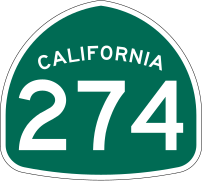Innovative church networks continue to emerge. Here's a new one built on the concept of an "unconference."
Innovation in Irvine
Several Church leaders from Southern California are participating in an upcoming event called,
 Image via Wikipedia
Image via Wikipedia
The Idea Camp
Promoted as "a free hybrid conference for idea-makers to share, network, and implement ideas." It will be held at New Song Irvine, a church pastored by David Gibbons.
From their website:
Planning the Unconference
The event is planned as an "unconference" -- an interesting new form of self-organizing, self-regulating, self-referential group interaction. Many of the church leaders I talk to are tired of being tied to their chairs listening to keynote speakers and hassled by a barrage of product-booths before and after events. This new form provides an intriguing opportunity to maximize networking while negotiating the amount of input each person wishes to give.
Taking their cues from the high-tech arena, an unconference allows a high level of interaction and self-organization. An article from Jonathan Follett in Digital Web magazine describes unconferences as "self-organizing forums,"
Another brief article on unconferences can be found here.
A Who's Who of Innovation-Friendly Evangelicals
The structure of an "unconference" is built around respected facilitators. They become the key, the glue, for sustaining a thread of dialogue focused on the theme at hand.
The long list of facilitators for this event include a who's who of local church leaders and innovation-friendly evangelicals. The names and (for most of them) websites are:
Innovation in Irvine
Several Church leaders from Southern California are participating in an upcoming event called,
 Image via Wikipedia
Image via WikipediaThe Idea Camp
Promoted as "a free hybrid conference for idea-makers to share, network, and implement ideas." It will be held at New Song Irvine, a church pastored by David Gibbons.
From their website:
We are gathering some of the most innovative and creative leaders from around the country (this means YOU!) to share ideas, intentionally network, and move collaboratively into idea-making. Whether your passion is church leadership, non-profit work, social entrepreneurialism, technology, media, creativity, culture making, church planting, spiritual formation, compassionate justice, etc., this is the conference for YOU.
The focus of this conference will be on the participants (yes, You!) and not on keynote speakers. We function under the belief that the crowd is always smarter and wiser than any one speaker. In fact, you are invited to create and refine some of the major components of the conference prior to the gathering itself via our web interface. You are welcome to suggest specific topics for our workshops (called Idea Sessions), leave comments, ask questions, share case scenarios for discussion, and even volunteer yourself to facilitate one of our Idea Sessions.
Planning the Unconference
The event is planned as an "unconference" -- an interesting new form of self-organizing, self-regulating, self-referential group interaction. Many of the church leaders I talk to are tired of being tied to their chairs listening to keynote speakers and hassled by a barrage of product-booths before and after events. This new form provides an intriguing opportunity to maximize networking while negotiating the amount of input each person wishes to give.
Taking their cues from the high-tech arena, an unconference allows a high level of interaction and self-organization. An article from Jonathan Follett in Digital Web magazine describes unconferences as "self-organizing forums,"
The unconference format is based on the premise that in any professional gathering, the people in the audience—not just those selected to speak on stage—have interesting thoughts, insights, and expertise to share. Everyone who attends an unconference, such as those put together by organizations like BarCamp or BrainJams, is required to participate in some way: to present, to speak on a panel, to show off a project, or just to ask a lot of questions.
As an event, the character of the unconference falls somewhere between that of a bazaar and that of an intellectual salon. It is, to borrow a phrase, a free “marketplace of ideas.” There are no themes or tracks to guide you, as in a typical conference; the whole event is centered on what might be called the discussion group.
The ad hoc nature and the low cost of this forum (they’re usually free, compared to the hundreds of dollars needed to attend some industry gatherings) make the unconference accessible to many.
Another brief article on unconferences can be found here.
A Who's Who of Innovation-Friendly Evangelicals
The structure of an "unconference" is built around respected facilitators. They become the key, the glue, for sustaining a thread of dialogue focused on the theme at hand.
The long list of facilitators for this event include a who's who of local church leaders and innovation-friendly evangelicals. The names and (for most of them) websites are:
Brad Abare (http://www.thinkpersonality.com and http://www.churchmarketingsucks.com)
Shah Afshar (http://www.shahshankedredemption.blogspot.com)
Greg Atkinson (http://www.gregatkinson.com)Image via Wikipedia
Dawn Nicole Baldwin (http://www.aspireone.com)
Eric Bryant (http://www.ericbryant.org and http://www.mosaic.org)
Spencer Burke (http://theooze.com)
Chris Cannon (http://www.kingsharbor.org)
Dawn Carter (http://www.decarter.wordpress.com)
Eugene Cho (http://www.eugenecho.wordpress.com)
DJ Chuang (http://www.djchuang.com and http://digital.leadnet.org)
Mike Foster (http://www.ethur.org and http://www.deadlyviper.org)
Dave Gibbons (http://www.davegibbons.tv)
Keith Kall (http://www.worldvision.org)
Todd Hiestand (http://toddhiestand.com)
Penny Hunter
Zach Hunter
Charles Lee (http://www.charlestlee.com)
James Pearson (http://www.jamestravels.com)
David Ruis (http://www.davidruis.com)
Matt Russell (http://www.myvcc.org/uturn)
Greg Russinger (http://www.just4one.org)
Jeff Shinabarger (http://www.jeffshinabarger.com)
Cynthia Ware (http://www.thedigitalsanctuary.org and http://digital.leadnet.org)
Tony Wood (http://www.generatelife.com)
Robert Yang (http://www.kindlejoy.com)
Henry Zonio (http://www.elementalcm.com)
Overall, events like this are becoming more common and are contributing to a re-distribution and re-framing of congregational philosophies. New networks become institutionalized, and new initiatives can be birthed from unanticipated collaborations.
What do you think?




No comments:
Post a Comment